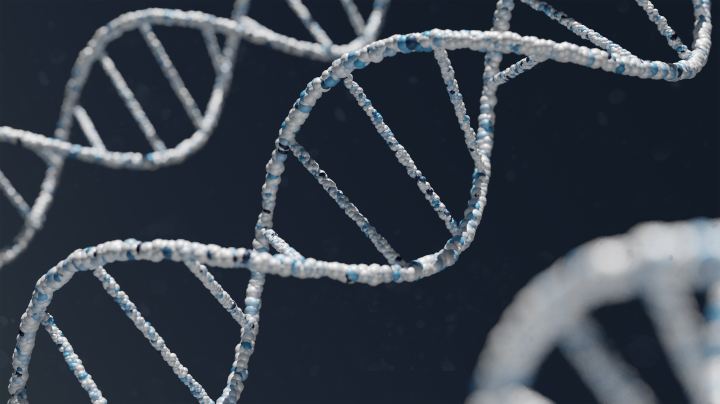WELLNESS
Epigenetic regulation – how to switch on good genes and switch off bad ones

Genes alone cannot result in a specific trait or disease. They do, however, interact with diet, lifestyle and environment choices, influencing how optimally our body functions. Furthermore, research indicates that although genes’ sequences rarely change, lifestyle and environment can have a profound effect on whether genes are switched on or off.
Someone recently said: “The men in our family die before 63. I won’t see 70.” Another commented: “I take after my mother. We only have to look at food to gain weight.”
This was in response to new research that suggests we have more control over the genes we inherit than previously believed.
So, how does it all work?
What impact does lifestyle have on our DNA?
Deoxyribonucleic acid (DNA) is made up of genes. It determines who we are, our personality traits and our features.
Professor Vinet Coetzee, from the Department of Biochemistry, Genetics and Microbiology at the University of Pretoria, explains that we are born with 23 pairs of chromosomes. They contain more than 20,000 genes. One chromosome of each pair comes from one’s mother and the other from one’s father. Only some genes are expressed in certain cells at any given time.
Research indicates that although genes’ sequences rarely change, lifestyle and environment can have a profound effect on whether genes are switched on or off. This process is called epigenetics.
It clarifies how environmental and lifestyle factors can influence how one’s body reads the gene or DNA sequence. This could play a part in whether a hereditary illness develops or not.
DNA methylation is one example of epigenetic regulation. Small methyl groups or chemical tags are added to the DNA molecule. This affects the proteins that are produced. These in turn impact the functioning of cells and could silence gene expression. When there is no DNA methylation, it has the opposite result and may activate the gene.
Dr Craige Golding, a specialist physician and anti-ageing expert, explains that genes can be divided into low- and high-penetrance (impact) gene variants. Gene variants are like spelling changes in our DNA sequence code. Their impact is minimal and they alone cannot result in a specific trait or disease.
They do, however, interact with diet, lifestyle and environment choices, influencing how optimally our body functions. On the other hand, what we call high-penetrance or high-impact gene variants increase the susceptibility an individual may have to a specific disease.
An example of a high-impact gene variant is the BRCA1 which has been associated with breast cancer. Golding says these gene variants are rare. Only 5% of breast cancers will arise from these genes, but 95% of breast cancers are the result of a combination of many low-impact gene variants and the diet and lifestyle choices we make.
What lifestyle and environmental factors affect DNA expression?
The major lifestyle and environmental factors that can influence gene expression include diet, nutrition, exercise, physical activity, stress, toxins, pollutants, sleep disruptions, psychological factors, the gut microbiome, ageing, drugs, medication and hormonal changes.
Ian Weinberg, a neurosurgeon from Johannesburg, says staying healthy is determined by much more than just the body’s biomechanical processes. It is also dependent on a healthy psychological state of mind. Emotions, for instance, can influence which genes are expressed or suppressed.
Too much stress can set off a chain reaction that has a direct effect on the production of a hormone such as adrenalin. Adrenalin is associated with an increased risk of chronic inflammation. This could give rise to abnormal DNA and the development of cancer cells. Early life trauma could also predispose one to cancer through a similar process.
Additionally, negative mind states, including stress, can change gene expression or suppression in the same way that lifestyle and environment do.
The result is that genes are turned on or off.
These changes affect personality traits and could be carried on to the next generation. Severely stressed parents can transmit epigenetic changes to their offspring. The process is referred to as intergenerational transmission. It could result in illnesses such as obesity, anxiety, PTSD or depression. The good news is that therapy can reverse it.
Golding says it is better to prevent disease than to treat it. He recommends that patients have their DNA tested. This gives a scientific analysis of low-impact genes and identifies where an individual’s body may not be functioning optimally. In his practice, he uses DNA results to give patients personalised advice on diet, lifestyle and supplement choices.
Golding believes that to prevent chronic disease associated with ageing, one should follow a healthy lifestyle and take additional supplements such as Omega 3, Resveratrol and NAD. These have excellent anti-inflammatory and antioxidant qualities.
However, the impact of epigenetics on genes is not an exact science.
Coetzee concluded that we still need to learn much about the complex relationships between genes, epigenetics, lifestyle and health. But there is sufficient evidence to show that exercise and a healthy diet are beneficial in combating a range of diseases. DM




















 Become an Insider
Become an Insider
Comments - Please login in order to comment.